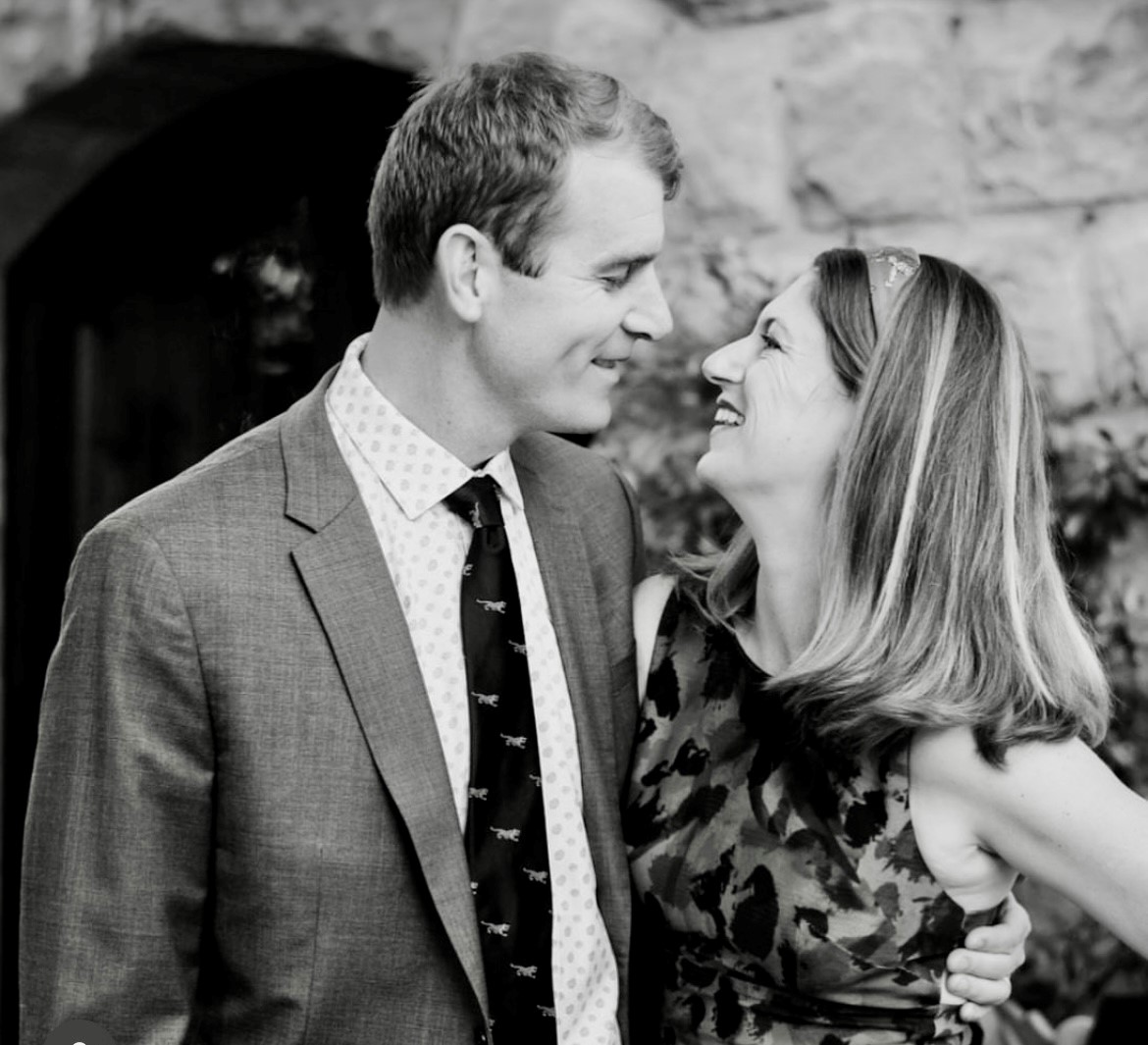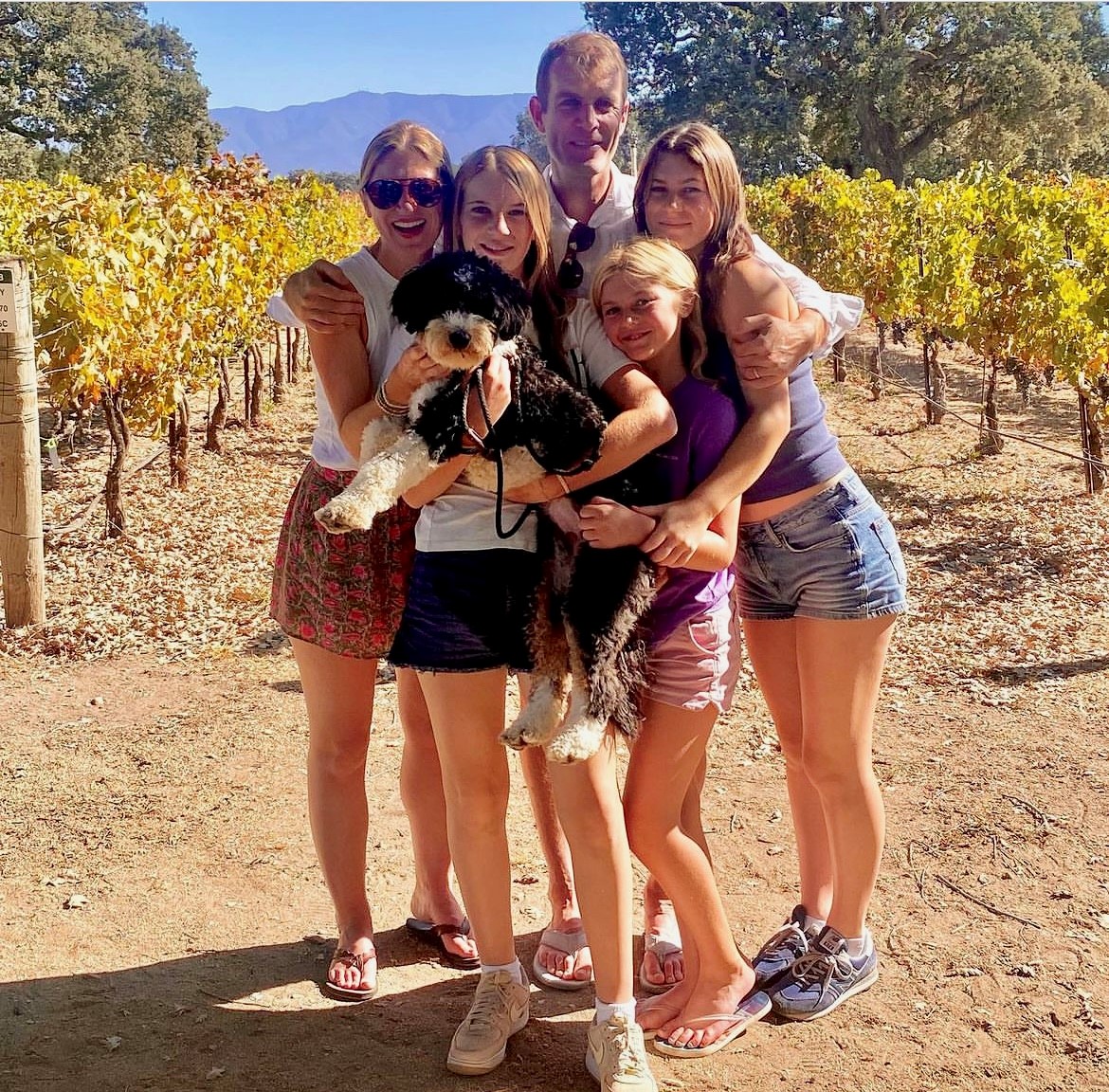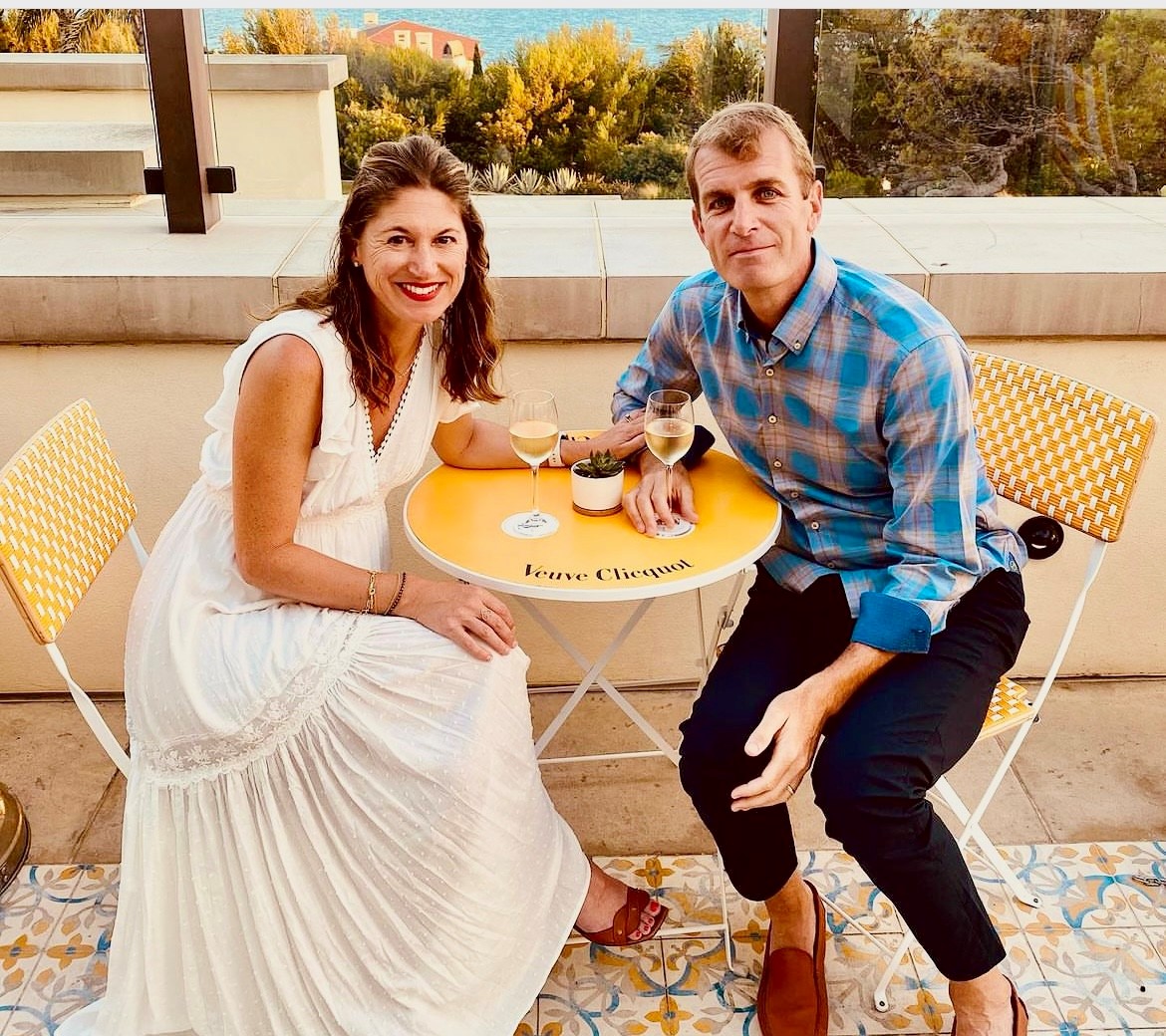Apr 10, 2024, 14:13
by
Good Health Digital

In early 2021, frequent upset stomach and troublesome trips to the bathroom prompted Zack Kramer to seek medical attention.
“Many things were happening at the same time, COVID, a stressful job, but it was becoming a bigger deal,” explains Zack. When his symptoms first began, the Santa Barbara dad of 3 daughters was younger than the recommended age 50 to receive a colonoscopy. (Now, the recommended age is 45.) When Zack scheduled his colonoscopy at Sansum Clinic’s Pueblo Ambulatory Surgery Center at age 47, he never would have guessed that two tumors would be uncovered.
Following the screening, gastroenterologist Dr. James Egan sat down with Zack and his wife, Jennifer, to express his serious concern about the masses he saw, and to immediately connect Zack with Dr. Cristina Harnsberger, the Clinic’s fellowship-trained colorectal surgeon. Each tumor appeared to be stage 3. Dr. Harnsberger recommended immediate surgery due to the blockage caused by the tumor in the colon. Zack’s case was complex since one tumor was in the colon, another in the rectum. "You really don't want to be unique when it comes to this stuff," he admits. "but I loved Dr. Harnsberger. She was optimistic and honest. I knew this would be an arduous process, but she put me at ease and gave me some hope. "Cases of colorectal cancer in young patients like Zack are unfortunately on the rise. You can find and prevent colorectal cancer by having a colonoscopy, starting at age 45," explains the surgeon.
The emotional weight of losing his mother to breast cancer and his sister to a brain tumor was already difficult for Zack - he was unfortunately familiar with cancer treatment and its effects, and it took great mental stamina to steady himself for his own journey. Zack's first surgery performed by Dr. Harnsberger in February 2022 dealt with blockage in his colon so he could start eating regular food again, and begin his cancer treatment. Acclimating to the major lifestyle changes afterwards was tough. Work stopped, his regular exercise and golf routine slowed. Zack's full-time occupation became recovery, so he could continue to fight his cancer. "It took me some time, and adjusting to that was maybe the hardest part," says Zack. "It's normalizing what your reality is like, and not letting that rule your life."

Shortly after the first surgery, Zack met with medical oncologist Dr. Mukul Gupta at Ridley-Tree Cancer Center. Dr. Gupta recommended a multi-layered approach to treat Zack's cancer, starting with chemotherapy, followed by radiation. The
goal was to shrink both tumors prior to a second operation. Zack felt well-prepared for what the next four months of treatment and close monitoring would look like. "Dr. Gupta is funnier than he likes to let on," divulges Zack, "which sometimes was what I really needed.” Patient navigator Dawn Elliott took the lead on care coordination. Genetic testing confirmed Zack's cancer was unlikely to be hereditary, and that he did not carry a gene change or mutation which could raise his risk for colorectal cancer, an important question answered since ten percent of colon cancers are hereditary. (People with Lynch syndrome, the most common form of hereditary colon cancer, have between a 20-60% lifetime risk of developing colorectal cancer, compared to 4% in the general population.)
Oncology dietitian nutritionist Pam Wells helped to educate Zack on how to adjust his diet to minimize any side effects from treatment, like changes in his appetite, taste and bowel function. Zack says Pam would gently reassure him when physical changes in his body felt concerning. Ridley-Tree's multidisciplinary model, where a patient's team of cancer care specialists work together under one roof, is standard practice. This type of care and the collaboration between his clinicians gave Zack great comfort. "The intimacy of the place. Not feeling like a number. Having enough repetition in the doctors you see and the nurses you interact with. It's nice to feel like they actually know you and care about you, and I felt that so much while I was here," he shares.
In the weeks between the end of chemotherapy and the start of six weeks of radiation therapy, Zack eased back into his work life. He began riding his Peloton bike, weightlifting and yoga. He took up Qigong and meditation to calm his mind so he could sleep better, and to settle himself before his daily visit into the linear accelerator. "It's so important to get your body in the right state of relaxation, and not freak yourself out with anxiety all the time, so I really tried to focus on that," commented Zack. Dr. Harnsberger likens the journey of rectal cancer to a marathon you didn’t sign up for, where mental stamina is as important as physical strength. “Once Zack was able to overcome the mental challenges of his treatment with the help of his wife and friends, he was able to integrate back into a highly-demanding job and play golf at a competitive level, even winning a local tournament,” she recalls. “It was inspiring.”

This idea of healing the body and mind as you move through chronic conditions is something that Zack and radiation
oncologist Dr. George Cheng connected on. While Dr. Cheng counsels patients on their radiation treatment, he also has special training through the Society of Metabolic Health Practitioners, and is a passionate advocate for achieving optimal health through incremental lifestyle changes. Dr. Cheng's depth of knowledge about radiation oncology combined with his strong belief in whole-person care to achieve better health, was a perfect fit for Zack. "There's so much conflicting data out there. Having doctors who you trust, who can weed through that for you, was so helpful," Zack notes. "They were always optimistic, and at no point did I ever get the sense that I wouldn't be getting through this."
Testing following Zack's radiation therapy showed the tumors had shrunk, increasing his confidence in his medical plan. He now needed to further build his physical and mental strength before his last surgeries. Several months later, he was ready for the final round. Dr. Harnsberger successfully performed a 6+ hour procedure to remove the tumors in his colon and rectum, and a few months later, completed a subsequent surgery to remove the ostomy. (An ostomy is used when part of the colon is removed, and the bowels need a temporary alternate route to expel waste from the body.)
As Zack transitioned into a period of recovery and healing after a long year, he reflected on what got him through. He noticed how his daughters rose to the occasion by using their unique gifts despite their own grief and fear. His eldest daughter, Stella proved her maturity and competence in practical ways, like regularly tackling a long list of household chores. Zack's middle daughter, Julia, breathed empathy into his everyday life by “living and dying the emotions” with him, deciding along the way that she'd like to become a surgeon like Dr. Harnsberger. Zack's youngest daughter, Eloise, provided pure joy when he could not manifest it himself. "She is so loving and happy. I don't think her feet really touch the ground when she walks," he says. And then there was Jennifer, Zack's wife. "She can just do it all," he remarks, fully engulfed in emotion when speaking about his partner. "She was there for every part of it, so supportive, available and still funny and silly; willing to commiserate with me and then push me when I needed to get going. She's amazing." More than 12 months past his last treatment and cancer free, moments with family and friends still produce strong feelings of gratitude. Zack admits he wondered whether he'd ever get back to the simple yet beautiful parts of life. "Based on the testing, it's about one in five, one in six that it comes back. But I am a year through now. If I can get through five years, you can reset the clock. And I think the prognosis is good."